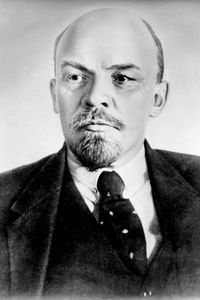Vladimir Ilyich Ulyanov, commonly referred to as Vladimir Lenin, was a pivotal figure in Russian revolutionary and political circles, leaving an indelible mark on the world of politics and theory. Born on April 22, 1870, Lenin's life was marked by a profound commitment to social and political change, culminating in his role as the inaugural and founding leader of the government of Soviet Russia from 1917 to 1924, as well as the Soviet Union from 1922 to 1924.
Throughout his tenure, Lenin's administration oversaw a fundamental transformation of Russia and, subsequently, the Soviet Union, into a one-party socialist state governed exclusively by the Communist Party. As a devoted Marxist, Lenin's innovative contributions to the ideology have come to be known as Leninism, a distinct and influential school of thought that continues to shape the political landscape to this day.






































